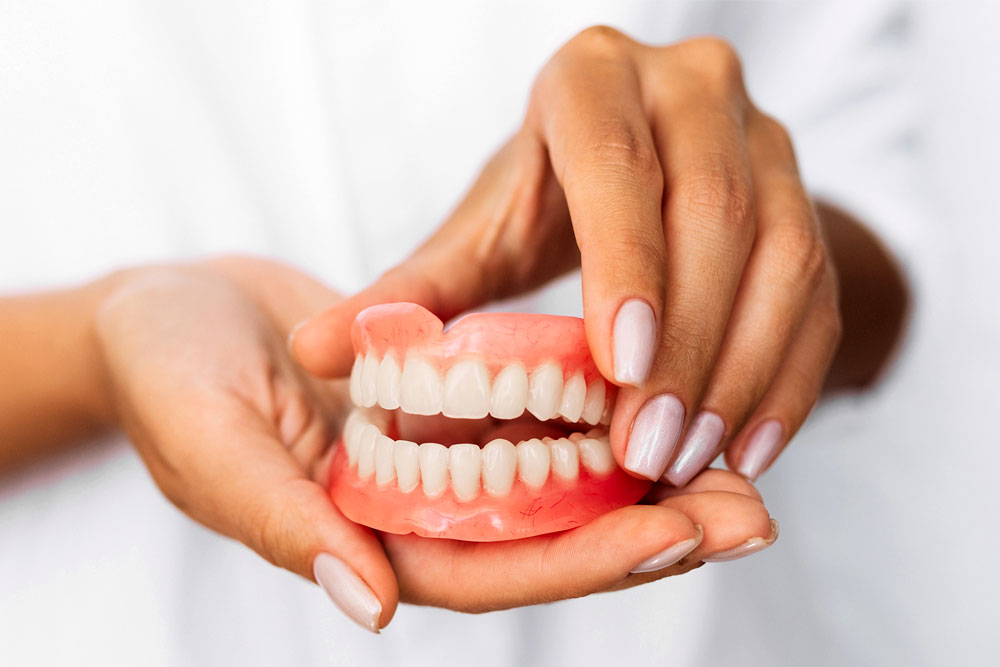If you’re wearing dentures and they don’t feel quite right, you’re not alone. Many denture wearers experience discomfort at some point, often due to changes in their mouth or improper fit. Ill-fitting dentures that fit poorly can affect not only your smile, but they can also impact your speech, ability to eat, and even your confidence.
Let’s examine the common signs of loose or ill-fitting dentures, their causes, and how your dentist or denturist can help you achieve a comfortable, natural-feeling smile.
What Are Ill-Fitting Dentures?
Dentures are designed to fit snugly and precisely over your gums and stay in place during everyday activities like speaking and chewing. Ill-fitting dentures no longer sit correctly on the gums, leading to movement, discomfort, and even sores.
Over time, the shape of your mouth changes as jawbone is lost, and your dentures need to adapt with these changes to ensure proper fitment. If they don’t, problems can quickly arise.
Signs Your Dentures Don’t Fit Properly
Watch for these common symptoms:
1. Sore Spots or Mouth Irritation
Redness, swelling, or painful areas under the dentures can signal too much pressure or friction.
2. Slipping or Shifting Dentures
If your dentures move when talking or eating, they likely need adjustment.
3. Difficulty Chewing
Having trouble biting or chewing food that used to be easy could be a sign of poor fit.
4. Changes in Speech
Lisping or slurred words may result from dentures not sitting where they should.
5. Clicking Sounds While Talking
This is often caused by loose dentures shifting with jaw movement.
6. Frequent Use of Adhesive
If you find yourself constantly relying on denture adhesive to keep your dentures in place, it’s time for a check-up.
What Causes Dentures to Become Loose?
Numerous factors can affect the fit of your dentures:
- Bone resorption: After tooth loss, the jawbone naturally shrinks over time, changing the shape of your mouth.
- Weight loss: Significant changes in weight can affect the soft tissues in your face and mouth.
- Wear and tear: Over time, denture materials can degrade or warp.
- Improper initial fit: Dentures that weren’t fitted properly from the beginning may never feel quite right.
Why It’s Important to Address Denture Fit
Wearing ill-fitting dentures can lead to:
- Mouth sores and infections
- Difficulty eating a balanced diet
- TMJ (jaw joint) pain or headaches
- Reduced self-confidence
- Bone loss progression
Ignoring the problem often makes it worse. Fortunately, various options are available.
What Are Your Options?
If your dentures don’t fit comfortably, here’s what your dentist may recommend:
- Denture Adjustment: Small modifications can relieve pressure points and improve fit.
- Denture Reline: This involves reshaping the underside of the denture to better fit your current gum shape.
- Denture Replacement: If your dentures are old, damaged, or worn out, a new set may be the best solution.
- Implant-Supported Dentures: For added stability, dental implants can anchor your dentures in place, which means no more slipping while eating or speaking.
When to See Your Dentist
You should see your dentist at least once a year for a denture check-up, or sooner if:
- You’re experiencing pain or discomfort.
- Your dentures are loose or shifting.
- You notice changes in your facial appearance.
- You’ve had your dentures for over 5 years.
Dentures should feel comfortable, natural, and stable. If yours don’t, you don’t have to live with the discomfort. Whether it’s a simple adjustment or a complete replacement, your dentist can help restore your comfort and confidence.
Contact us today to schedule an assessment or appointment!

